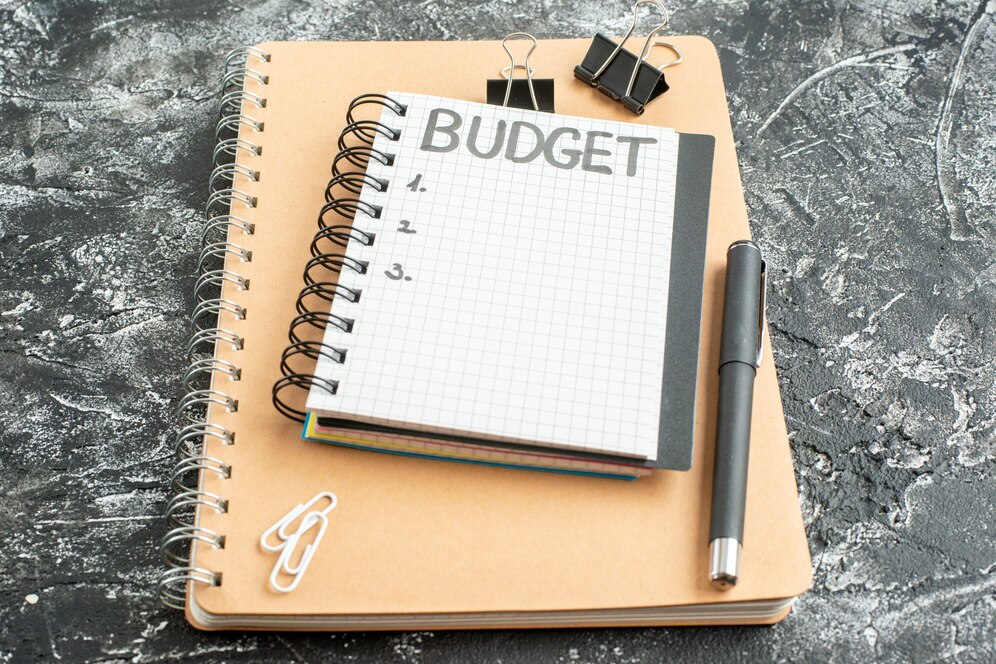
Budgeting Tips for Young Professionals
Starting your career brings newfound independence, fresh opportunities—and for many, a crash course in adulting. Suddenly, you’re navigating rent, bills, savings, and maybe even student loans. The freedom is exciting, but it also comes with a need for smarter money management.
Budgeting isn’t about restricting yourself; it’s about gaining control. With the right approach, you can build habits that empower you to save, spend intentionally, and plan for the future with confidence.
In this blog, we’ll explore practical personal budgeting strategies, easy steps for effective financial planning, and real-life tips to help you manage your money without feeling overwhelmed. Whether you’ve just landed your first job or you’re settling into your professional rhythm, it’s never too early to take control of your financial future.
Why Budgeting Matters—Especially Early in Your Career
Build a Strong Financial Foundation
Budgeting helps you:
- Avoid debt accumulation
- Build an emergency fund
- Start saving for long-term goals (travel, a home, or retirement)
These small wins early on lay the groundwork for financial stability later in life.
Reduce Stress and Boost Confidence
Money is one of the biggest sources of stress for young adults. Knowing exactly where your money is going—and why—provides clarity and peace of mind. Financial confidence starts with clear planning and honest tracking.
Personal Budgeting Strategies That Actually Work
1. Start with the 50/30/20 Rule
This simple framework divides your after-tax income into:
- 50% Needs: Rent, groceries, utilities, transport
- 30% Wants: Dining out, streaming services, hobbies
- 20% Savings & Debt Repayment: Emergency fund, student loans, investments
Example: If you earn £2,500 per month after tax:
- £1,250 on needs
- £750 on wants
- £500 on savings and debt
It’s flexible, easy to follow, and a great starting point for financial planning.
2. Track Every Pound (At Least for a Month)
Awareness is everything. Use budgeting apps like:
- Monzo or Revolut (built-in budgeting features)
- YNAB (You Need A Budget) for proactive planning
- Emma or Snoop for account integration and smart insights
Tracking your expenses even for 30 days helps identify spending leaks and patterns.
3. Automate Your Savings

Set up a standing order that moves money into savings as soon as you get paid—not after you’ve spent it.
- Open a separate savings account
- Automate contributions to your ISA or pension
- Use apps with “round-up” features that save spare change
This removes the temptation to spend and makes saving effortless.
Financial Planning Tips for Young Professionals
Set Clear, Realistic Goals
Your goals should guide your budget. Think short-, medium-, and long-term:
- Short-term: Save £500 for a weekend trip
- Medium-term: Pay off credit card debt or save for a car
- Long-term: Build a house deposit or start investing
When your money is tied to your goals, you’re more motivated to stick to your plan.
Prepare for the Unexpected
An emergency fund is your financial safety net. Aim for:
- £500–£1,000 as a starter buffer
- 3–6 months of expenses as a long-term goal
This protects you from surprise expenses like medical bills, job loss, or car repairs without putting you into debt.
Review Your Budget Monthly
Life changes—and so should your budget.
- Got a raise? Adjust your savings goals.
- Paid off a loan? Reallocate that money towards investments or leisure.
- Moved cities? Reassess housing and transport costs.
Budgeting is not a set-it-and-forget-it activity—it’s a dynamic part of smart money management.
Practical Money Management Habits
Avoid Lifestyle Inflation
As your income grows, it’s tempting to upgrade everything—flat, clothes, holidays. That’s called lifestyle inflation, and it can sabotage your long-term goals.
Instead:
- Increase your savings rate along with your income
- Spend mindfully, not automatically
- Celebrate wins without blowing the budget
Use Credit Wisely
Credit isn’t bad—misused credit is.
- Pay off your full balance each month
- Avoid impulse buys on credit
- Use a low-interest or rewards-based card only if you’re confident in repaying
Responsible credit use can also help build a solid credit score, which is useful when applying for mortgages or loans.
Don’t Compare Yourself to Others
Social media makes it easy to feel behind. Remember:
- Everyone has different circumstances
- People rarely share their debts or financial struggles
- Focus on your journey and goals
Your financial life isn’t a race—it’s a long game of smart choices and discipline.
Budgeting Tools and Resources to Try
Tool/App Features Best For YNAB Zero-based budgeting, goal setting Detailed planners Monzo Instant alerts, savings pots, spending categories Everyday UK users Emma Expense tracking, subscriptions alerts Beginners wanting clarity Revolut Budget insights, currency exchange, crypto Travellers and digital spenders Snoop AI insights, bill tracking Maximising savings and deals
Most offer free versions—test a few and see what fits your style.
Common Budgeting Mistakes to Avoid
Mistake Why It’s a Problem Better Approach Ignoring small purchases They add up quickly Track everything—even coffees and snacks Not saving regularly Missed growth and security Automate savings monthly, no matter how small Making a budget too strict Leads to burnout and binge spending Allow room for fun and flexibility Only budgeting monthly Misses annual or quarterly expenses Plan for big events like holidays or tax bills Not revisiting your plan Your needs change over time Review and tweak monthly
Build a Budget That Works For You

Budgeting is not about deprivation—it’s about empowerment. With the right personal budgeting strategies, consistent habits, and clear goals, you can take charge of your finances and reduce stress. It’s one of the smartest investments you can make in your 20s and early career.
So start simple: track your expenses, pick a budget method that suits your lifestyle, and commit to monthly checking in. Your future self will thank you.
Ready to take control of your money? Choose one budgeting habit from this post and implement it today. Small steps, big impact.